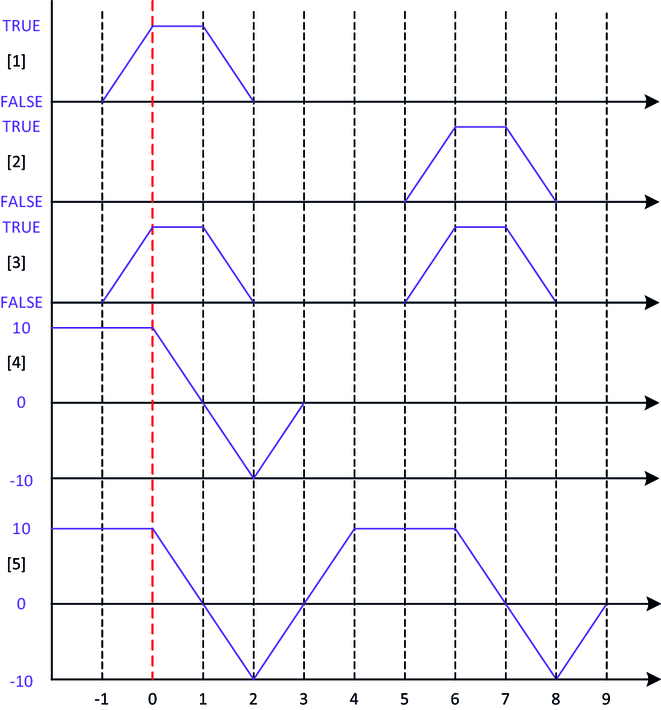Performing readjustment
The following diagram shows the sequence of the referencing if readjustment is used for the "positive limit switch" reference travel type:
- t < -1: Both axis group members travel searching for the limit switches in the positive direction
- t = -1: Axis group member 1 reaches its limit switch first.
- t = 0: Both axis group members decelerate to speed 0.
- t = 1: Both axis group members travel at negative speed.
- t = 2: The positive limit switch of axis group member 1 is no longer actuated. As such, both axis group members slow down to speed 0.
- t = 3: Axis group member 2 begins moving again since its limit switch has not yet been actuated.
- t = 5: The positive limit switch of axis group member 2 is hit.
- t = 6: Axis group member 2 slows down to speed 0.
- t = 7: Axis group member 2 travels in the negative direction of its limit switch.
- t = 8: The positive limit switch of axis group member 2 is no longer actuated. As such, this stops to speed 0.
- t = 9: Both axis group members have recorded their reference point, and referencing is complete.
|
[1] | Positive limit switch for axis group member 1 |
[2] | Positive limit switch for axis group member 2 |
[3] | Logical OR-operation of the positive limit switch |
[4] | Axis group member 1 speed |
[5] | Axis group member 2 speed |
